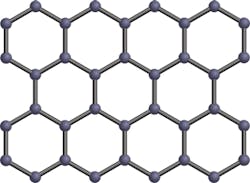New Water Filter Technology Renders Seawater Drinkable After One Pass
Australian scientists have created a new water filter that renders highly polluted seawater drinkable after just one pass. The new invention utilizes a type of graphene called Graphair and may aid in providing safe drinking water to areas with limited access.
Lead author of the study, Dong Han Seo, sees the new technology as a potential saving grace for the 2.1 billion people worldwide without consistent access to clean and safe drinking water.
“As a result, millions-- mostly children --die from diseases associated with inadequate water supply, sanitation and hygiene every year,” Seo said. “In Graphair we’ve found a perfect filter for water purification. It can replace the complex, time consuming and multi-stage processes currently needed with a single step.”
The new technology was developed at the Commonwealth Scientific and Industrial Research Organization (CSIRO). Graphene materials are relatively inexpensive to produce, and the Graphair substance utilized is even cheaper. Because graphene repels water, researchers installed microscopic nanochannels to allow water through while halting larger pollutants.
However, contaminants often end up blocking these nanochannels, disallowing water from passing through the membrane effectively. This usually means adding the additional step of removing contaminants before filtration, but the researchers found that the Graphair film still functioned while being covered in contaminants, effectively eliminating the step in the filtration process.
“This technology can create clean drinking water, regardless of how dirty it is, in a single step,” Seo said. “All that’s needed is heat, our graphene, a membrane filter and a small water pump. We’re hoping to commence field trials in a developing world community next year.”
Researchers hope the technology will have far reaching implications, eventually hoping to service household and town-based water filtration, as well as seawater and industrial wastewater treatment.
